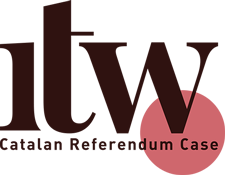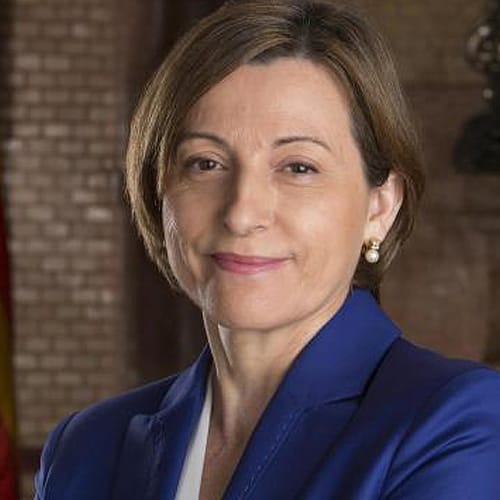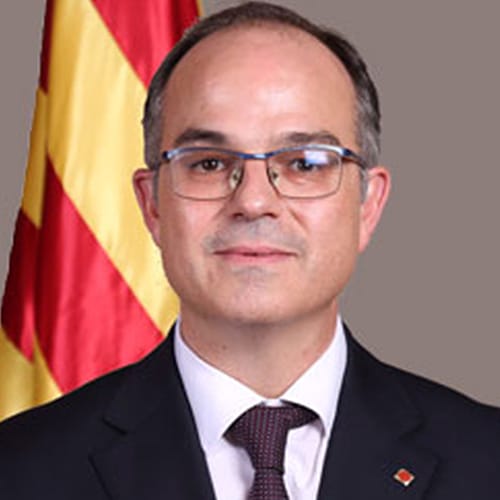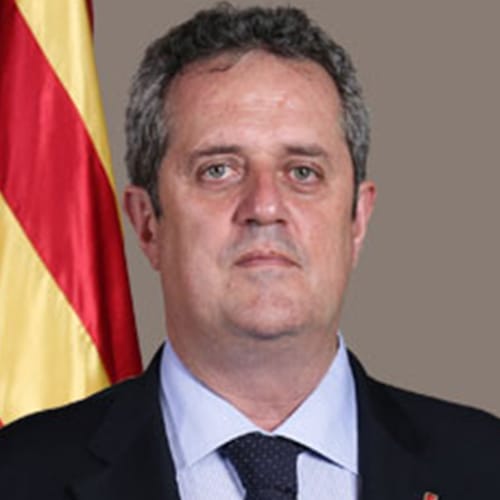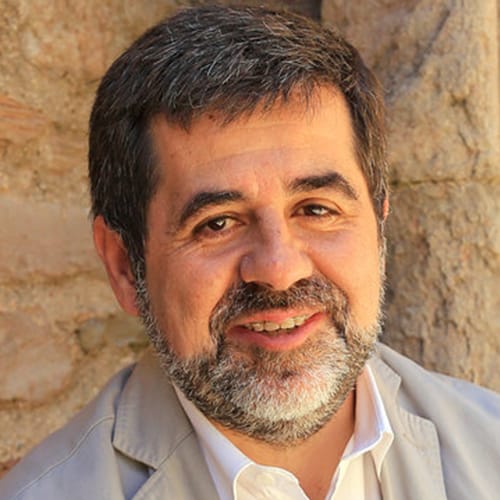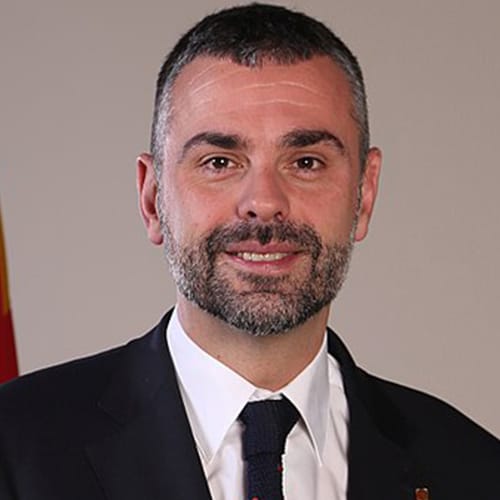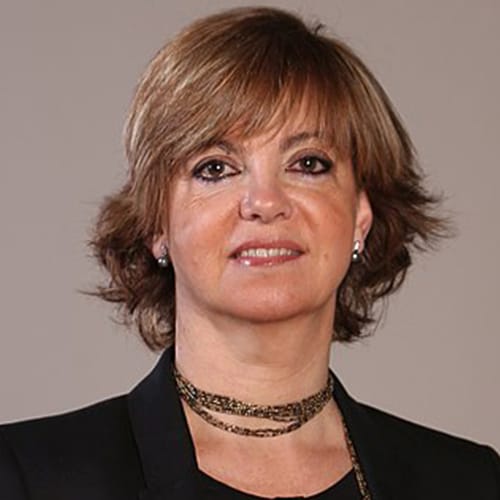Definitions
Crimes
Rebellion
Article 472
A conviction for the offence of rebellion shall be handed down to those who violently and publicly rise up for any of the following purposes:
1. To fully or partially repeal, suspend or amend the Constitution;
5. To declare the independence of any part of the national territory
7. To disaffect from obedience to the Government any armed force.
Article 473
1. Those who, inducing the rebels, have promoted or sustain the rebellion, and its ringleaders, shall be punished with a sentence of imprisonment from fifteen to twenty- five years and absolute barring for the same time; those who act as subaltern commanders, with that of imprisonment from ten to fifteen years and absolute barring from ten to fifteen years, and mere participants, with that of imprisonment from five to ten years and special barring from public employment and office for a term from six to ten years.
2. If weapons have been used, or if there has been combat between the rebellious force and the sectors loyal to the lawful authority, or when the rebellion has caused criminal damage to publicly or privately owned property, cutting off telegraphic and telephone lines, the airwaves, railways or any other kind of communications, with serious violence against persons, demanding contributions or diverting the public funds from their lawful investment, imprisonment shall be handed down, respectively, of twenty- five to thirty years for the former and from fifteen to twenty- five years for the second, and from ten to fifteen years for the latter.
Article 478
Should whoever commits any of the felonies foreseen in this Chapter be an authority, the punishment of barring foreseen in each case shall be substituted by that of absolute barring for a term from fifteen to twenty years, except if that circumstance is specifically included in the criminal classification concerned.
Sedition
Article 544
Conviction for sedition shall befall those who, without being included in the felony of rebellion, public and tumultuously rise up to prevent, by force or outside the legal channels, application of the laws, or any authority, official corporation or public officer from lawful exercise of the duties thereof or implementation of the resolutions thereof, or of administrative or judicial resolutions.
Article 545
1. Those who have induced, sustained or directed the sedition or who appear as the main doers thereof, shall be punished with a sentence of imprisonment from eight to ten years, and with that ten to fifteen years if they are persons with the status of an authority. In both cases, absolute barring for the same term shall also be imposed.
2. Apart from those cases, a punishment from four to eight years imprisonment and of special barring from public employment and office for a term from four to eight years shall be imposed.
Misuse of public funds
Article 432
1.The authority or public officer who, for profit, steals or allows a third party, with the same intention, to steal public funds or property he has under his charge due to his duties, shall incur a sentence of imprisonment from three to six years and absolute barring for a term from six to ten
2.A sentence of imprisonment shall be imposed from four to eight years and that of absolute barring for a term of ten to twenty years, if the embezzlement is especially serious, in view of the value of the sums embezzled and the damage or hindrance caused to the public The same penalties shall be applied if the items misappropriated are listed due to their heritage or artistic value, or if they are goods assigned to public catastrophe relief.
3.When the amount embezzled does not reach the sum of 4,000 euros, the penalties imposed shall be a fine exceeding two and up to four months, imprisonment from six months to three years and suspension from public employment and office for a term of up to three
Disobedience
Article 410
1.Authorities or civil servants who openly refuse to duly fulfil court resolutions, decisions or orders of a higher authority, handed down within the scope of their respective powers and complying with the legal formalities, shall be punished with a fine from three to twelve months and special barring from public employment and office
Article 73
Authorities or civil servants who openly refuse to duly fulfil court resolutions, decisions or orders of a higher authority, handed down within the scope of their respective powers and complying with the legal formalities, shall be punished with a fine from three to twelve months and special barring from public employment and office
Article 74
1. Notwithstanding what is set forth in the preceding Article, whoever perpetrates multiple actions or omissions, in the execution of a preconceived plan or taking advantage of an identical occasion, that offend one or several subjects and infringe the same criminal provision or provisions that are equal to or of a similar nature, shall be punished as the principal of a continued felony or misdemeanour with the punishment stated for the most serious offence, that shall be imposed in its upper half, it being possible to reach the lower half of the higher degree of punishment.
Criminal organisation
Article 570 bis
1.Whoever promotes, constitutes, organises, co-ordinates or directs a criminal organisation shall be punished with a sentence of imprisonment from four to eight years, if it has the purpose or object of committing serious felonies, and with a sentence of imprisonment from three to six years in other cases; and whoever actively participates in the organisation, forms part thereof or co-operates financially or in any other way therein, shall be punished with imprisonment from two to five years if its purpose is to commit serious felonies, and with a sentence of imprisonment from one to three years in other
For the purposes of this Code, a criminal organisation is construed to be a stable group formed by one or more persons, for an indefinite term, in collusion and co-ordination to distribute diverse tasks or duties in order to commit felonies, as well as to carry out reiterated commission of misdemeanours.
2.The penalties foreseen in the preceding Section shall be imposed in the upper half when the organisation:
a) is formed by a large number of persons;
b) possesses weapons or dangerous instruments;
c) has advanced technological resources for communication or transport that, due to their characteristics, are especially fit to facilitate commission of the offences or the impunity of the
Should two or more of those circumstances concur, the higher degree penalties shall be imposed.
Prosecution
Public Prosecution Ministry
The Public Prosecution Ministry, without prejudice to the functions entrusted to other bodies, has as its mission, the promotion of Justice in defence of the rule of law, the rights of citizens and the public interest protected by the Law, ex officio or at the request of the interested parties, as well as to ensure the independence of the Courts and to seek before them the promotion of social interest (art. 124 EC). The Public Prosecution Ministry exercises its functions through its own bodies, in accordance with the principles of unity of operation and hierarchical subordination subject in all cases, to the rule of law and impartiality. The basic law that regulates the Spanish Public Prosecution Ministry is the Organic Statute of the Public Prosecution Ministry, approved by Law 50/81, of 30th December, and modified by Law 24/2007, of 9th October. The Public Prosecution Ministry is a single body for the entire State and its members are the authority for all purposes, always acting as representatives for the whole Institution.
Solicitor General of the State
The Solicitor General of the State represents the State and depends functionally on the Ministry of Justice. It is the governing body for the services that provide legal assistance to the State and to other public institutions. It is led by the Solicitor General of the State and appointed by the Council of Ministers.
People’s Prosecution
A concept regulated in article 125 of the Spanish Constitution, giving legitimacy to any citizen to present themselves in a criminal judicial process, even if they have not been directly affected by the crime in question. It is a form of civic participation in the justice system and characteristic to Spain; it does not exist in other countries. Even though it is permitted both for individuals and corporate entities, it is very common for it to be carried out by groups, associations or even political parties.
Jurisdictional bodies and other judicial concepts
Constitutional Court
Based in Madrid, it acts as the supreme interpreter of the Constitution. It does not form part of the Judiciary. Its main functions are to hear appeals and issues of unconstitutionality against laws, the writ of protection for the violation of public rights and freedoms, conflicts of competence between the State and the Autonomous Communities or those between them, conflicts between the constitutional bodies of the State, and conflicts in defence of local autonomy. It is made up of twelve magistrates: four are appointed on the proposal of the Congress of Deputies, four on the proposal of the Senate, two on the proposal of the central Government and two on the proposal of the General Council of the Judiciary.
Writ of protection
Its aim is to protect against violations of fundamental rights and freedoms recognised in articles 14 to 29 and 30.2 of the Constitution originating from provisions, legal acts, omissions or procedures outside the remit of the public powers of the State, the Autonomous Communities and other public entities of a territorial, corporate or institutional nature, as well as their civil servants or agents. The only claim that can be asserted through the writ of protection is that of the restoration or preservation of rights or freedoms by reason of which the writ is brought forward.
Enforcement of Constitutional Court sentences
In 2015, the Spanish Government pushed through a legislative reform giving over complete and direct responsibility for handing out sentences to the Constitutional Court itself. The reform was severely criticised by the Venice Commission of the Council of Europe, which considered that it threatened the independence and “neutrality” of the Court.
Supreme Court
Based in Madrid, it is the highest court for all ordinary jurisdictional matters (civil, penal, contentious-administrative and social). The Supreme Court constitutes the top of the system of challenges and therefore bears overall responsibility for the uniformity of the interpretation of case law in Spain. It deals with, amongst other matters, decisions on appeal hearings, reviews and other extraordinary appeals, as well as the prosecution of members of higher State bodies and the processes for outlawing political parties. The Chamber in charge of criminal matters is the Second Chamber. There is no appeal against the criminal judgments of the Supreme Court before ordinary jurisdiction, but it is possible to lodge a writ of protection.
National Court
Based in Madrid, it is a unique legal body in Spain with jurisdiction throughout the whole national territory. It constitutes a centralised and specialised Court for the understanding of certain matters which are attributed by law. Specifically, it deals with the most serious crimes of social relevance such as, among others, terrorism, organised crime, drug trafficking, crimes against the Crown or financial crimes that cause serious damage to the national economy.
High Court of Justice of Catalonia
Based in Barcelona, it is the body that culminates the judicial organisation in the territorial area of the Autonomous Community, without prejudice to the jurisdiction that corresponds to the Supreme Court and those matters that require constitutional guarantees, areas that correspond to the Constitutional Court. It has been assigned the jurisdiction for crimes that occur within the territorial area of Catalonia.
Court Order
És una resolució judicial mitjançant la qual un tribunal es pronuncia sobre peticions de les parts, resolent les incidències, és a dir, les qüestions diverses de l’assumpte principal del litigi, però relacionades amb ell, que sorgeixen al llarg d’un procés jurisdiccional. Atès que és una resolució decisòria, en la majoria dels casos és possible impugnar mitjançant la interposició d’un recurs judicial.
Sentence
The final legal ruling issued by a judge or court that brings an end to the litis or case which has been submitted, definitively terminating the proceedings.
Parliamentary inviolability
A parliamentarian prerogative, whose purpose is to ensure the independence of the Parliament before the other powers of the State. In the case of the regional deputies, they also benefit from this prerogative via the statute.
Art. 71 of the EC establishes that deputies and senators will enjoy inviolability for the opinions expressed in the exercise of their duties; opinions that comprise the votes cast in the Chamber which they belong to. Furthermore, in accordance with the consolidated doctrine of the Constitutional Court (for all, CCJ30/1997) the inviolability protects them from the commencement of any court proceedings when the objective of the proceedings constitutes a requirement to take responsibility for expressions or votes uttered in the exercise of parliamentary activity.
Privileged
A privileged person is one who, by holding a position in public office, or for their profession, benefits from the right, in the case of being accused of a crime, to be tried by a different court from that which corresponds to a normal citizen. The purpose of this privilege is to prevent political pressures which an ordinary court may be subject to when trying someone who holds a position in public office.
Court of Justice of the European Union
Based in Luxembourg, the Court of Justice of the European Union is the judicial institution of the Union. The Court of Justice of the European Union (CJEU) interprets EU law to make sure it is applied in the same way in all EU countries, and settles legal disputes between national governments and EU institutions.
Security forces
National Police
An armed Spanish institution of a civil nature, which answers to the Ministry of the Interior, and is principally responsible for police surveillance in all provincial capitals and urban centres determined by the Government. It is also responsible for, through its numerous specialties, criminal, legal, terrorist and public order and immigration matters.
Civil Guard
An armed Spanish institution of a military nature, which answers to the Ministry of the Interior and Defence, which fulfils, among others, duties of security. The Constitution, in article 104, sets out its primary mission as protecting the free exercise of the rights and freedoms of Spaniards and guaranteeing the security of its citizens. Its members are considered from those with a military career, and the body has also been entrusted with missions of military nature.
Mossos d'Esquadra
The autonomous police force of Catalonia, being part of the security forces, refounded as a police force with comprehensive police powers. It is in charge of the functions of citizens’ security, the administrative police, judicial police, intervention, and local police, which are the responsibilities of the Government of Catalonia.
Institutions and organisations of Catalonia
The Government of Catalonia (Generalitat de Catalunya)
The Government of Catalonia is the institutional system in which the autonomous government of Catalonia is organised. It is made up of the Parliament, the Government, the Presidency of the Government and of other institutions established by the 2006 Autonomous Statute of Catalonia and by the laws.
The Government of the Generalitat
The official body that manages the politics and Administration of the Generalitat, the holder of the executive function and the regulatory power. The President of the Generalitat holds the highest position of office and directs and coordinates the action of the Government.
The Parliament of Catalonia
The institution that represents the people of Catalonia, situating them in a central position in the institutional system of the autonomous government of Catalonia. It exercises legislative power, approves the budgets of the Government and controls and promotes political and governmental action. It is currently made up of 135 deputies, elected for a four-year term via a universal, free, equal, direct and secret ballot.
The Board of the Parliament of Catalonia
The governing body of the Parliament of Catalonia. Through its members it represents the Chamber and manages and governs the institution. The Board is made up of a president, two vice-presidents and four secretaries.
Advisory Council for the National Transition
A body created by the Government of Catalonia in 2013 with the aim of advising the government on the process of independence in Catalonia and on carrying out a referendum for self-determination. The Council was affiliated to the Department of the Presidency of the Government. Its members did not receive any compensation for their work. It was abolished on 27th October 2017 by the Government of Spain upon applying Article 155 of the Spanish Constitution.
White Book for the National Transition
It is a white book presented on September 29 of 2014 by the Generalitat de Catalunya, which analyzes the different aspects to be taken into account in the process of transition of Catalonia towards an independent state. The document includes all the reports made by the Advisory Council for the National Transition and a synthesis of these made by the secretariat of the Council.
Parties and Catalan entities cited in the cause
Junts pel Sí (JxS) (Together for Yes)
An electoral candidate for the elections to the Parliament of Catalonia of 2015, in which it gained 62 out of the 135 deputies. It was an electoral coalition formed by Covergència Democràtica de Catalunya (CDC) (Democratic Convergence of Catalonia), Esquerra Republicana de Catalunya (ERC) (Republican Left of Catalonia), Demòcrates de Catalunya (Democrats of Catalonia) and the Moviment d’Esquerres (Left Movement), whose aim and electoral programme was the declaration of independence for Catalonia.
Partit Demòcrata Català (PDCat) (Catalan Democratic Party)
A political party founded in 2016, as the successor to the Convergència Democràtica de Catalunya party (1974) that governed Catalonia in coalition with Convergència i Unió (Convergence and Union) from 1980 until 2003. It defines itself as democratic, pro-Catalan, pro-independence, pro-European and humanist. In the last elections it promoted a broad candidacy (Junts per Catalunya, Together for Catalonia), which gained 34 out of the 135 deputies in the Parliament of Catalonia.
Esquerra Republicana de Catalunya (Republican Left of Catalonia)
A political party founded in Barcelona in 1931. It defines itself as republican, leftist and pro-independence. It played an important role in Catalan and Spanish politics during the Second Republic, in the fight against Franco and during the transition. Currently it has 32 deputies out of 135 in the Parliament of Catalonia.
Candidatura d’Unitat Popular (CUP) (Popular Unity Candidacy)
A political party that works towards Catalan Countries which are independent, socialist, ecologically sustainable, territorially balanced and free from any form of patriarchal domination. Currently it has 4 deputies out of 135 in the Parliament of Catalonia.
Òmnium Cultural
A non-profit organisation created in 1961 to promote the Catalan language and culture. It is made up of around 130,000 members, being one of the largest cultural organisations in Europe. It emerged to fight censorship, the persecution of the Catalan culture and to fill the void left by the political and civil institutions of Catalonia banned by the dictatorship. Currently it plays a key role in the defence of human and civil rights, with a growing involvement at European and global level.
Assemblea Nacional Catalana (ANC) (Catalan National Assembly)
A civil society organisation created in 2012 which defines itself as popular, unitarian, plural and democratic. Its objective is to achieve independence for Catalonia through the constitution of a social and democratic rule of law. Since 2010 the organisation has promoted mass peaceful demonstrations together with Òmnium Cultural, for the right of Catalans to democratically and freely choose their political future by way of a referendum for self-determination.
Associació de Municipis per la Independència (AMI) (Municipal Associations for Independence)
An organisation that groups together local entities of elected officials (local governments, counties, deputies and others) with the aim of defending the independence of Catalonia, created in 2011. Currently it covers all the provincial deputies (Barcelona, Tarragona, Lleida and Girona), 32 out of 41 county councils and 764 Catalan municipalities (80.6% of the total) out of 948.
Comités de Defensa de la República (CDR) (Committees for the Defence of the Republic)
An nonpartisan group of local, neighbourhood and county assemblies who aim to defend, in the first instance, the Referendum of the 1st October and the subsequent Catalan republic, with a non-violent strategy. It is estimated that there are close to 380 committees.
